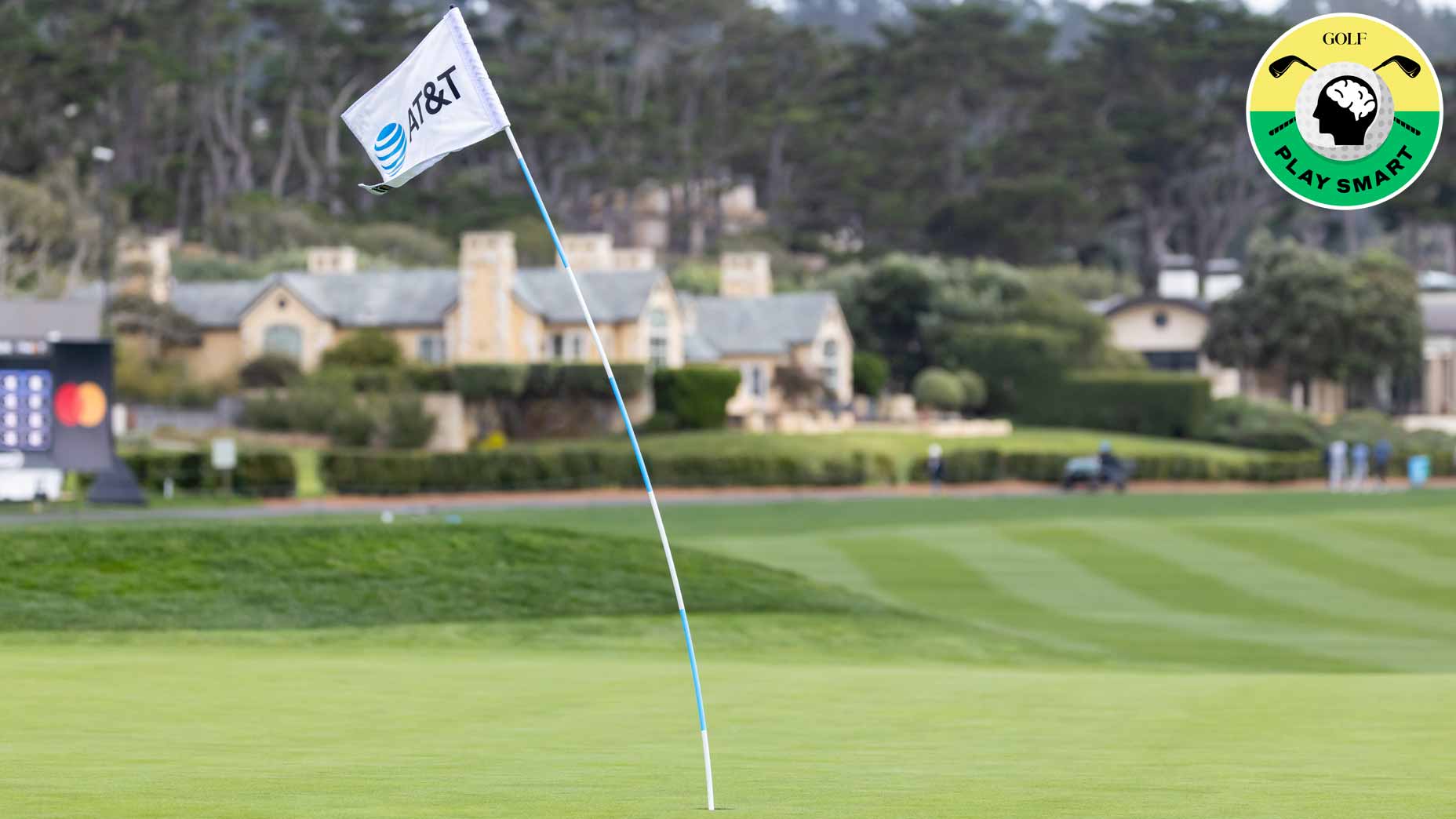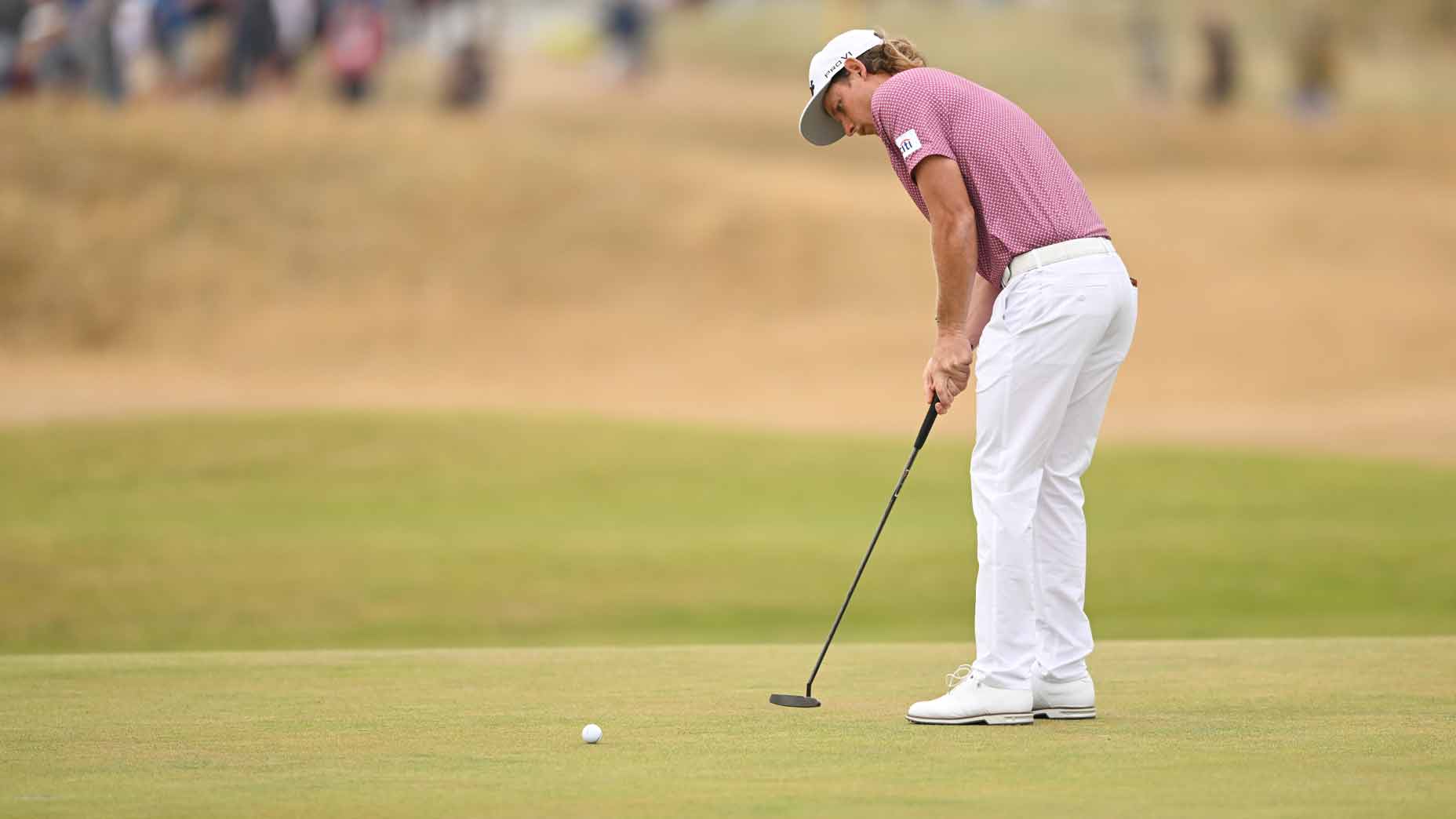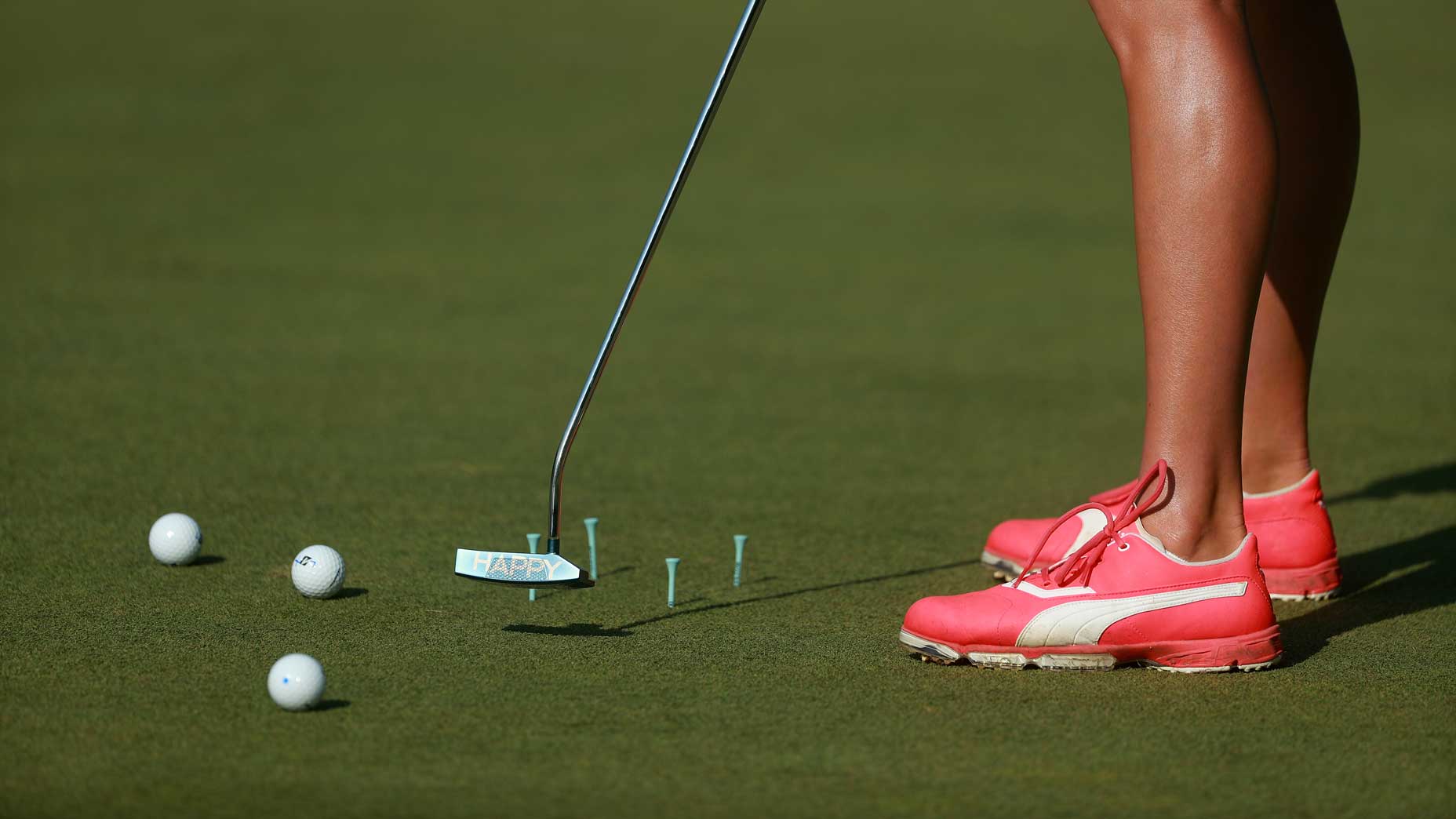 Fascinating video shows how wind affects your putts on the greens
Fascinating video shows how wind affects your putts on the greens
How to make the golf hole bigger when you putt, according to science

We’ve all been there. We know what it’s like. You’re standing over a makeable putt — maybe it’s for birdie, or for a clutch par — so you decide to give it a little something extra. You hit the putt firm, watch as it rolls towards the hole… and then groan in agony as it slams against the lip and bounces away. So unlucky!
Or is it?
Many golfers take it as a given that, if they really want to make a putt, they should hit it hard. “Never up, never in,” and all that. But that’s only true if you’re in danger of leaving your ball short of the hole. You want to make sure your ball gets to the hole, of course, but you don’t want be trying to smash your ball into the cup. Turns out that may actually make holing the putt even harder and causing more lip-outs, according to Trackman Golf.
The graphic below may seem a little daunting, but sitting in the top left is some rather interesting information.
Simply put, the data shows that the faster your ball enters the hole, the more likely it’s going to lip out. The slower the ball is traveling as it enters the hole, the bigger the effective size of the hole actually becomes.
Why? Because gravity will take over. A slow-moving ball entering on the side of the hole will simply drop down in, whereas a fast-moving ball will use its forward momentum to catapult around the lip.
ADVERTISEMENT

According to the data above, on a flat green rolling about 10 on the stimp meter…
- A putt that is traveling fast enough to end one and a half feet past the hole will makes the effective size of the hole about 25 percent smaller.
- A putt that is traveling fast enough to end about five feet past the hole will makes the effective size of the hole 63 percent smaller.
If you like to hit your putts firm, you can — you just need to make sure you hit the center of the hole because you have less room for error.
Fascinating insight from Trackman Golf, and something golfers should keep in mind the next time they’re on the green.
To receive GOLF’s all-new newsletters, subscribe for free here.
ADVERTISEMENT





